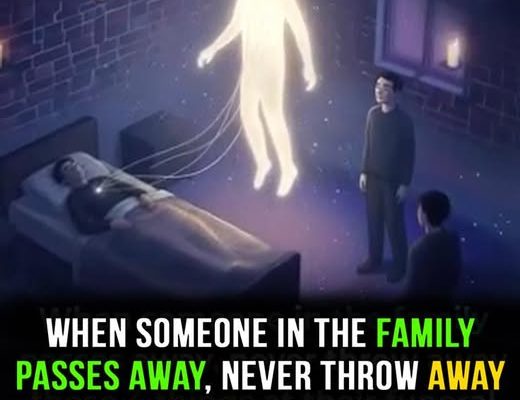Grief doesn’t arrive politely. It doesn’t knock, doesn’t wait, doesn’t care if you’re ready. It comes like a fog—thick enough to blur everything familiar, heavy enough to slow you down, and disorienting enough to make simple choices feel impossible. When someone you love dies, you grasp for anything that feels like control. Some people clean. Some people donate boxes of clothes before the smell of their perfume even fades. And some throw everything into trash bags because the alternative is sitting still with the ache.
But the truth is simple: once something is gone, you can’t get it back. And some things—quiet, ordinary, unremarkable things—carry a weight you won’t understand until much later. Before you start clearing closets or emptying drawers, it’s worth pausing long enough to think. Sometimes grief tricks you into believing that simplifying will somehow soften the pain. What it actually does is rob you of the little anchors that could steady you later.
There are four kinds of things worth keeping, even if you don’t know why yet.
The first is handwriting. A note, a list, a birthday card, the back of an envelope with their rushed scribble on it—these scraps feel insignificant in the early days. But months or years later, when the memory of their voice feels dim, something as simple as their handwriting can hit with the force of a heartbeat. The curve of their letters, the pressure of the pen, the way they spelled a certain word wrong every time—these details bring a person back in a way polished memories can’t. Handwriting has texture. It has personality. It feels alive. Tuck these notes somewhere safe. One day, you’ll be grateful you did.
The second thing is their voice and their face—captured in photos, videos, voicemails, anything. When grief is raw, it’s tempting to silence the world by deleting reminders or avoiding anything that feels too sharp, too real. But time changes how we experience loss. The day will come when a voicemail becomes a treasure, not a trigger. A short video clip will feel like a small miracle. You’ll notice things you had forgotten: how they laughed between sentences, how their eyes squinted just before they smiled, the rhythm of their footsteps in the background of the recording. These images and sounds preserve details your mind will eventually blur. Losing someone is painful enough; you don’t need to erase pieces of them too.
Then there are the objects they touched—small, everyday items that once blended into the background. A worn watch. A favorite mug. A pair of glasses with tiny scratches from years of use. These items hold an emotional temperature no photograph can replicate. They carry the shape of their routine, the rhythm of their days. Holding something they held can settle you in moments of chaos. Grief makes you crave presence, and sometimes the closest thing you get to presence is touch. You don’t need to keep everything. But choose a few things that feel like them—their everyday them, not their curated holiday self. Those items become grounding stones.
And lastly, documents. Not just the obvious practical ones—wills, insurance papers, bank information—but also the pieces of their personal history. School certificates, old letters, military records, notebooks, even receipts tucked away in drawers. These things tell a story. They show where they came from, what they achieved, what mattered to them. They become threads in the tapestry of your family’s memory. One day, someone younger may want to know who their great-grandparent was, what job they worked, what choices they made. These documents turn a life into a legacy.
When someone dies, there is a dangerous urgency in the air. Everyone wants to be useful. Everyone wants something to “do.” Clearing out belongings becomes an easy task to latch onto. But grief isn’t a checklist. It’s not a project to finish. It’s a slow and painful education in how to love someone who is no longer physically here.
So give yourself permission to slow down. Keep what feels like them, even if you can’t yet explain why. You don’t owe anyone an explanation for the box you keep under your bed or the mug you refuse to donate. What matters is that these objects connect you to the parts of your loved one that grief cannot erase.
One day, you might find that the smallest thing—a keychain, a ticket stub, a messy grocery list—hits you with warmth instead of pain. Those moments remind you that grief makes space for love, not the other way around.
People often say, “You can’t take anything with you when you go.” That may be true for the person who leaves, but those left behind carry pieces of them in ways that defy logic. A life is more than memories. It’s touch, sound, handwriting, texture, routine, history. These pieces matter. Don’t let the fog convince you otherwise.
If you’re grieving right now, take a breath. You don’t have to sort everything today. You don’t have to make irreversible decisions in the middle of heartbreak. Keep what feels right. Put aside what you’re unsure about. You can always let go later. You can’t always get something back.
And if you’ve carried keepsakes through your own loss, you already know how much comfort they can bring on days when the world feels colder. Your experience might be exactly what someone else needs to hear.



